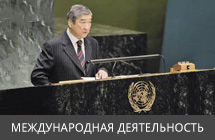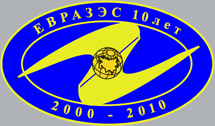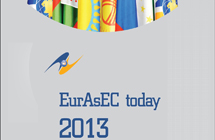|
AGREEMENT AGREEMENT on customs valuation of goods transferred through the customs border of the customs union AGREEMENT on customs valuation of goods transferred through the customs border of the customs union
The Government of the Guided by the generally accepted principles and rules of international trade, Have agreed as follows:
Article 1
1. The customs value of goods transferred through the national customs border of a Party at export from its territory shall be determined in accordance with the legislation of this Party. 2. This Agreement shall set the unified rules for customs valuation of goods for the purpose of applying the Common customs tariff of the customs union and other measures, different from customs and tariff regulation, which are taken (may be taken) in order to control the trade of goods of the customs union. Provisions of this Agreement shall be applied in case when the goods have actually crossed the customs border of the customs union at importing to the common customs area of the customs union and it is the first time since crossing the customs border that a customs regime is declared for such goods. In other cases the provisions of this Agreement may be applied if it is directly indicated in the legislation of the corresponding Party. 3. Customs value of goods transferred through the customs border of the customs union shall be determined in accordance with this Agreement taking into account the principles and provisions on the valuation of goods for customs purposes of the General Agreement on Tariffs and Trade of 1994 (GATT 1994).
Article 2
1. Customs valuation of imported goods shall be as much as possible based on the price of transaction with these goods in the sense indicated in Article 4 of this Agreement. If the customs valuation of imported goods on the basis of transaction price is impossible it is allowable to hold consultations between the customs authority and the declaring person in order to make a justified choice of the basis for the customs valuation of imported goods, in compliance with Article 6 or Article 7 of this Agreement. During consultations the customs authority and the declaring person can exchange information, on condition the legislation on trade secrets of the respective Party is observed. Consultations shall be held under the procedure specified by the legislation of the Party in question. If the customs valuation of imported goods in accordance with Article 6 and Article 7 of this Agreement is impossible, the valuation basis may be the price, at which the imported, identical or similar goods were sold in the common customs area of the customs union (Article 8 of this Agreement), or an estimated cost of goods determined in accordance with Article 9 of this Agreement. The declaring person is eligible to choose the order of priority for application of the said Articles at the customs valuation of imported goods. If the customs valuation of imported goods through application of the above mentioned Articles is impossible, the customs valuation shall be carried out in accordance with Article 10 of this Agreement. 2. With the view to ensure the lawfulness, uniformity and fairness of the customs valuation it shall not employ arbitrary or fictitious customs value of goods. 3. The customs value of goods and the information related to their valuation shall be based on reliable and computable data and supported by documentary evidence. The procedure of customs valuation shall be universal, i.e. shall not differ depending on the source of goods (country of origin, type of goods, participants of a transaction, etc.). 4. The customs valuation procedures for imported goods shall not be used by the Parties as antidumping measures. 5. Provisions of this Agreement shall not be regarded as restrictive for the functions of a Party’s customs authorities targeted at verifying the authenticity of the documents provided for customs valuation by the declaring person and the credibility of the included data, as envisaged by the customs legislation of the Party in question.
Article 3
1. For the purposes of this Agreement the used notions shall have the following meanings: “Imported goods” are goods transferred through the customs border of the customs union for the purpose of exporting to the common customs area of the customs union; “Related parties” are persons that fall within at least one of the following categories: a) employees or directors (heads) of the opposite party; b) legally recognized business associates, i.e. connected with contractual relations, acting to make profit and together bearing expenses and damages related to the joint activity; c) an employer and his employee, personnel; d) any person directly or indirectly owning, controlling or holding five and more percent of the issued voting shares of the both parties; e) one of the two persons directly or indirectly controlling the other; f) two directly or indirectly controlled by a third person; g) two persons jointly controlling a third person, directly or indirectly; h) persons that are relatives or members of one family. persons that are partners in a joint enterprise or another activity, where one of them is the exclusive (the only) agent, the exclusive distributor or the exclusive concessionaire of the other, whatever form it might take, shall be regarded as interrelated for the purposes of this Agreement, if they fall within at least one of the above categories; “Identical goods” are goods similar in every respect, including their physical characteristics, quality and image. Insignificant divergence in their appearance shall not constitute grounds for not recognizing the goods as identical, if in all other respects the goods are in conformity with the requirements of this paragraph. The goods shall not be regarded as identical if they were produced in a country different from the country where the evaluated (imported) goods were produced, or if their designing, developing, engineering or design efforts, styling, design, drafts and sketches or similar works were carried out in the common customs area of the customs union. The notion “produced” (“were produced”) with regard to goods has also the meanings “extracted”, “raised” and “manufactured” (including mounting, assembling or disassembling of goods)”. Identical goods produced by a person other than the producer of evaluated (imported) goods shall be taken into consideration only if identical goods are not discovered at the same producer, or the obtained information is considered unusable; “Similar goods” are goods that are not identical in every respect, but have similar characteristics and include similar components of the same materials, which allow them to perform the same functions as the evaluated (imported) goods and be commercially interchangeable. When identifying the similarity of goods such characteristics as quality, image and trademark are taken into account. The goods shall not be reckoned as similar if they are not produced in the same country as the evaluated (imported) goods, or if their designing, developing, engineering or design efforts, styling, design, drafts and sketches or similar works were carried out within the common customs area of the customs union. The notion “produced” (“were produced”) with regard to goods has also the meanings “extracted”, “raised” and “manufactured” (including mounting, assembling or disassembling of goods)”. Similar goods produced by a person other than the producer of evaluated (imported) goods shall be taken into consideration only if similar goods are not discovered at the same producer, or the obtained information is considered unusable; “Goods of the same class or type” are the goods belonging to one and the same group or a line of commodities, including identical and similar goods, which are manufactured in the framework of a certain economic activity; “Place of entry of goods into the common customs area of the customs union” is a checkpoint at the customs border of the customs union, appointed by the Parties, where the goods must be delivered after they cross the national border of the respective Party. This notion may be defined more specific for the purposes of customs valuation by joint decision of the customs union’s bodies; “Generally accepted accounting principles” is the system of accounting rules applied under the established procedure in a certain country in a certain time frame; “Third countries” are states not participating in the Treaty on the creation of the common customs area and establishment of the customs union dated October 06, 2007.
Article 4
1. The customs value of goods imported to the common customs area of the customs union is the price of the respective transaction, i.e. the price actually paid or liable to be paid for these goods at their sale for importing to the common customs area of the customs union and enlarged in accordance with the provisions of Article 5 of this Agreement, if any of the following conditions are present: 1) There are no restrictions of the purchaser’s rights regarding the use or disposal of goods, except the restrictions of the following character: – restrictions set by the joint decision of the customs union’s bodies; – restrictions that put limitations on the geographical region where goods may be resold; – restrictions that have no considerable influence on the price of goods; 2) The sale of goods and their price do not depend on any conditions or obligations which exert computable influence on the price of goods; 3) No share of income or proceeds from the subsequent sale or disposal in any other way or use of goods by the purchaser is obliged to be paid directly or indirectly to the seller, except extra charges may be made in cases, when in accordance with Article 5 of this Agreement; 4) The purchaser and the seller are not related parties, or they are related in such a way that the price of transaction with the imported goods is acceptable for customs purposes as stipulated in Clause 4 of this Article. 2. The price actually paid or liable to payment for the imported goods shall be the total of all payments for these goods, made or liable to be made by the purchaser directly to or to the benefit of the seller. At this the payments may be made directly or indirectly in any form admissible by the legislation of the respective Party. 3. The relations between the seller and the purchaser itself shall not constitute grounds for declaring the price of transaction unacceptable for customs valuation of goods. In this case it is necessary to analyze the accompanying circumstances. If the existing relation did not affect the price, actually paid or liable to payment, the price of transaction must be found acceptable for customs valuation of goods. If the seller and the purchaser are related parties and from the information provided by the declaring person or obtained in other ways it is evident that the relation between the seller and the purchaser affected the price, actually paid or liable to payment, the customs authority shall inform the declaring person in writing thereof. The declaring person must prove that the relation between the seller and the purchaser did not influence the price, actually paid of liable to payment. 4. At sale of goods between the related parties in cases specified in the second paragraph of Clause 3 of this Article the price of transaction with imported goods shall be taken into consideration and the customs valuation of goods shall be carried out in accordance with Clause 1 of this Article, only if the declaring person proves that the price of transaction with imported goods is close to one of the following benchmark values, found in the same or the respective time frame, when the imported goods crossed the customs border of the customs union: 1) Price of transaction with identical or similar goods, when such goods were sold for importing to the common customs area of the Customs Union to the purchasers not being the related parties; 2) Customs value of identical or similar goods determined in accordance with Article 8 of this Agreement; 3) Customs value of identical or similar goods determined in accordance with Article 9 of this Agreement. 5. The comparison performed as per Clause 4 of this Article shall take into account the information provided by the declaring person on the difference in the commercial sales levels, in the quantity of goods, in the extra charges specified in Article 5 of this Agreement, as well as the differences in the expenses usually borne by the seller, when the seller and the purchaser are not the related parties, as compared to the expenses borne by the seller, if the seller and the purchaser are the related parties. 6. The benchmark values specified in Clause 4 of this Article shall be used at the initiative of the declaring person only for comparison and cannot be used as a basis for customs valuation of goods. 7. The price, actually paid or liable to payment, for imported goods is related to goods transferred through the customs border of the customs union, therefore the transfer of dividends or similar payments not related to the imported goods by the purchaser to the seller is not a part of the customs value.
Article 5
1. At customs valuation of goods on the basis of the transaction price, the price actually paid or liable to payment shall be enlarged by the following: 1) The following expenses in the amount they were actually borne or liable to be borne by the purchaser, but not included in the price actually paid or liable to payment for the imported goods: a) Remuneration to intermediaries (agents) and brokers, except procurement remuneration paid by the purchaser to his agent (intermediary) for the representative services abroad related to the purchase of the evaluated (imported) goods; b) Expenses on the container, if it is considered as an integral part of the imported goods for customs purposes; c) Expenses on packaging, including the cost of packaging material and work; 2) Adequately distributed cost of the following goods and services, directly or indirectly provided by the purchaser to the seller free of charge or at reduced price for use at production and sale of the evaluated (imported) goods and their import to the common customs area of the customs union, in the amount not included in the price actually paid or liable to be paid for the imported goods: a) Raw stock, materials, components, semi-manufactured articles and the like that constitute the imported goods; b) Instruments, patterns, templates and the like used in manufacturing of imported goods; c) Materials used in production of the imported goods; d) Designing, developing, engineering or design efforts, styling, design, drafts and sketches or similar works carried out outside the common customs area of the customs union and necessary for production of the imported goods; 3) A part of income (revenues) from the subsequent sale or other disposal or use of the imported goods that must be directly or indirectly paid to the seller; 4) Expenses on carriage (transportation) of goods to the airport, port or other place of entry into the common customs area of the customs union; 5) Expenses on handling of goods and other operations related to their carriage (transportation) to the airport, port or other place of entry into the common customs area of the customs union; 6) Expenses on insurance related to the operations mentioned in Clause 1, Sub-clauses 4 and 5 of this Article; 7) License and similar payments for the use of intellectual property objects (including payments for patents, trademarks and copyrights) related to the evaluated (imported) goods and directly or indirectly made or to be made by the purchaser, as a condition of the sale of the evaluated goods, in the amount that was not included in the price actually paid or liable to be paid for these goods. At customs valuation of imported goods the following items shall not be added to the price actually paid or liable to be paid: a) Payments for the right of replication (duplication) of the imported goods in the common customs area of the customs union; b) Payments for the right of distribution or resale of the imported goods, if such payments are not a condition for sale of the imported goods to be transferred to the common customs area of the customs union. 2. The customs value of the evaluated (imported) goods shall not include the following expenditures, if they are deducted from the price actually paid or liable to be paid indicated by the declaring person and supported by documentary evidence: – Expenses on the construction, building, assembling, mounting, maintenance and technical support with regard to such evaluated (imported) goods as industrial plants, machinery and equipment, expenses incurred after the goods arrive in the common customs area of the customs union; – Expenses on carriage (transportation) of goods that are made after their arrival in the common customs area of the customs union; – Duties, taxes and fees paid in the common customs area of the customs union in connection with the import or sale of the evaluated (imported) goods. 3. Additions (extra charges) to the price actually paid or liable to be paid for the imported goods, envisaged by Clause 1 of this Article shall be based on reliable and computable information supported by documentary proof. If there is no such information as required for extra charges, the valuation method based on transaction price shall not be employed. 4. At customs valuation of imported goods no additions to the price actually paid or liable to payment shall be made, except the additions specified in Clause 1 of this Article. 5. On increasing the price actually paid or liable to be paid, the following rules shall be observed: a) The cost of articles mentioned in Clause 1, Sub-clause 2 b of this Article which were used in the production of evaluated goods shall be distributed by adding this cost to the customs value of the first consignment of goods or to the customs value of the other lot of goods, as chosen by the declaring person; this quantity should not be less than the quantity of the declared goods. This distribution shall be performed in a reasonable way, depending on specific circumstances such as the documents provided by the declaring person, in line with generally accepted accounting principles. Moreover the cost of the said items shall be considered equal either to the expenses borne at their acquisition, if the purchaser and seller are not related parties, or the cost of their production if the purchaser produced the items. If the said items have been used by the purchaser earlier, whether they were bought or produced by the purchaser, the initial cost of their acquisition or production shall be reduced in order to find (determine) the residual value of the items; b) With regard to goods and services provided by the purchaser and specified in Clause 1, Sub-clause 2 d of this Article which were bought or rented by the purchaser, additions shall be made for the expenses on purchase and rent of such goods and services, if the purchaser provides publicly owned goods and services i.e. state or municipal property; extra charges are made for cost (expenses) of their replication. Extra charges specified in Clause 1, Sub-clause 2 of this Article shall take into account both the cost of goods (items) and all the expenses related to their provision (delivery) to the purchaser (including their return if this is envisaged).
Article 6
1. If the customs value of goods imported to the common customs area of the customs union cannot be found in accordance with Article 4 of this Agreement, the customs value of such goods shall be considered equal to the price of transaction with identical goods, sold for exporting to the common customs area of the customs union and imported to the common customs area of the customs union in the same as the evaluated (imported) goods or the respective time frame, but no earlier than 90 calendar days prior to importing the evaluated (imported) goods. The customs valuation of the evaluated (imported) goods as per this Article should employ the price of transaction with identical goods, sold at the same commercial level and practically in the same quantity as the evaluated (imported) goods. If no such cases are discovered it is necessary to employ the price of transaction with identical goods sold at the same commercial level but in other quantities. If no such cases are discovered, it is necessary to employ the price of transaction with identical goods, sold at the different commercial level, but in the same quantity. If no such cases are discovered, it is necessary to employ the price of transaction with identical goods, sold at the different commercial level and in another quantity. The above stated should be applied with the proper price correction, taking into account the differences in the commercial level of sale and (or) the quantity of goods. Such correction and its precision shall be based on the documentary justification, no matter if it increases or reduces the price of transaction with identical goods. If no such documentary data exist, the price of transaction with identical goods shall not be used for customs valuation. 2. If necessary, customs valuation of evaluated (imported) goods as per this Article shall use correction of the price of transaction with identical goods to take into account a considerable difference in the expenses mentioned in Article 5, Clause 1, Sub-clauses 4–6 of this Agreement, with regard to the evaluated and identical goods, which is conditioned by the difference in the distance of carriage (transportation) and the transport facility. 3. If more than one price of transaction with identical goods is found (taking into account the corrections mentioned in Clauses 1–2 of this Article), customs valuation of the evaluated (imported) goods shall use the lowest price.
Article 7
1. If the customs value of goods, imported to the common customs area of the customs union cannot be determined in accordance with Articles 4 and 6 of this Agreement, the customs value of such goods shall be considered equal to the price of transaction with similar goods sold for exporting to the common customs area of the customs union and imported to the common customs area of the customs union in the same or respective time frame with the imported goods, but not earlier than 90 calendar days prior to importing the evaluated (imported) goods. Customs valuation of
evaluated (imported) goods as per this Article shall employ the price of
transaction with similar goods sold at the same commercial level and
practically in the same quantity as the evaluated (imported) goods. If no such
cases are discovered, it is necessary to employ the price of transaction with
similar goods sold at the same commercial level, but in another quantity. Such correction and its precision shall be based on documentary justification, no matter if it increases or reduces the price of transaction with similar goods. If no such data are present, the price of transaction with similar goods shall not be used for customs valuation. 2. If necessary, customs valuation of evaluated (imported) goods as per this Article shall use correction of the price of transaction with similar goods to take into account a considerable difference in expenses mentioned in Article 5, Clause 1, Sub-clauses 4 – 6 of this Agreement, with regard to evaluated and similar goods, which is conditioned by the difference in the distance of carriage (transportation) and the transport facility. 3. If more than one price of transaction with similar goods is revealed (taking into account the corresponding corrections mentioned in Clauses 1–2 of this Article), customs valuation of the evaluated (imported) goods shall use the lowest of them.
Article 8
1. If the customs value of evaluated (imported) goods cannot be determined in accordance with Articles 4, 6 and 7 of this Agreement, their customs value shall be found in compliance with this Article, except the cases when the opposite order of priority may be employed at the request of the declaring person. 2. If either evaluated (imported), identical or similar goods are sold in the common customs area of the customs union in the same condition as they were imported to the common customs area of the customs union, the customs valuation of the evaluated (imported) goods shall be based on the unit price of the goods, at which the largest total number of evaluated (imported), identical or similar goods is sold to persons that are not related parties, such sale taking place in the common customs area of the customs union in the same or respective time frame, when the evaluated (imported) goods crossed the customs border of the customs union, on condition the following amounts are deducted: 1) Remuneration to the intermediary (agent) usually paid or liable to payment, or an addition to price, usually made in order to receive profit and cover commercial and administrative expenses in the amount typical for sales of the same class or type of goods within the common customs area of the customs union; 2) Usual expenses on
carriage (transportation), insurance and the related 3) Customs duties, taxes and fees, applied in accordance with the legislation of a corresponding Party, other taxes liable for payment in connection with importing and (or) sale of goods in the national territory of this Party, including taxes and duties of regional administrations, local taxes and duties. 3. If neither evaluated (imported) nor identical or similar goods are sold within the common customs area of the customs union in the same or respective time frame when the imported goods crossed the customs border of the customs union, the customs value of such goods shall be determined on the basis of unit price by which goods identical with the evaluated (imported) or similar with the evaluated (imported) goods are sold in the common customs area of the customs union in a quantity sufficient for identifying the unit price of such goods in the same condition that they were imported, on the earliest date with respect to the date of arrival of goods to the common customs area of the customs union, but no later than 90 days after this date. 4. If neither evaluated (imported) nor identical or similar goods are sold within the common customs area of the customs union in the same condition they were imported to the common customs area of the customs union, at the written request of the declaring person the customs value of the evaluated (imported) goods shall be determined based on the unit price of such goods at which their largest total quantity is sold upon processing (refinement) to persons that are not related parties, on condition the cost added as a result of processing (refinement) and the amounts set forth in Clause 2, Sub-clauses 1–3 of this Article are deducted. Deductions of costs added as a result of processing (refinement) shall be based on reliable and computable information supported with documentary evidence related to the cost of processing (refinement). 5. Provisions of Clause 4 of this Article shall not be employed for customs valuation in the following cases: As a result of further processing (refinement) evaluated (imported) goods lose their individual features, except cases when despite the loss of individual features the cost added as a result of processing (refinement) can be determined precisely; Evaluated (imported) goods do not lose their individual features but comprise such an insignificant part of the goods sold within the common customs area of the customs union that the cost of evaluated (imported) goods does not exert any considerable influence on the cost of the sold goods. The possibility of employing Clause 4 of this Article shall be considered in each separate case depending on the circumstances. 6. At considering sales of evaluated (imported), identical or similar goods within the common customs area of the customs union, sales to a person providing directly or indirectly, free of charge or at reduced price, goods and services specified in Article 5, Clause 1, Sub-clause 2 of this Agreement in connection with production and delivery for exporting the evaluated (imported) goods to the common customs area of the customs union shall not be taken into account. 7. For the purposes of this Article the amount of gain and commercial and administrative expenses (direct and indirect expenses related to sale of goods) shall be regarded as additional to the price of goods covering these expenses and providing gain from sale of the evaluated (imported) goods of the same class and type. The amount of gain and commercial and administrative expenses is taken into account in total and determined on the basis of information available to the declaring person, if the provided information is comparable with the data on sales of the same class and type of goods in the respective Party. If these data are not in compliance with the information on usual profits and commercial and administrative expenses at sales of goods of the same class or type for exporting to the common customs area of the customs union available to the customs authority, the customs office can determine the sum of usual profit and the total expenses on the basis of information available to the customs authority. If the customs authority determines the amount of profit, commercial and administrative expenses on the basis of data available to the customs authority, it should indicate the source of such data and the derived calculations in writing. 8. For the purposes of this Article information on goods of the same class or type exported from the same country as the evaluated (imported) goods and information on goods from other countries shall be used. The question of whether the evaluated (imported) goods are of the same class or type as the goods they are compared with shall be resolved in each case individually depending on the circumstances. For this the sales of the smallest possible group or line of goods of the same class or type including the evaluated (imported) goods for which information is available shall be considered.
Article 9
1. The customs valuation of goods as per this Article shall be based on the estimated cost of goods, which shall be determined by summation of the following items: 1) Expenses on production or acquisition of materials and expenses on production of evaluated (imported) goods and related operations; 2) Amounts of profit, commercial and administrative expenses equivalent to the amounts usual for sales of the same class or type of goods as the evaluated (imported) goods which are produced in the exporting country for exporting to the common customs area of the customs union; 3) Expenses specified in Article 5, Clause 1, Sub-clauses 4–6 of this Agreement. 2. Expenses specified in Clause 1, Sub-clause 1 of this Article shall be determined based on information on the production of the evaluated (imported) goods provided by or on behalf of the producer and supported by the producer’s business documentation, on the condition that such documents are in line with generally accepted accounting principles applied in the country of production. 3. Expenses specified in
Clause 1, Sub-clause 1 of this Article shall include expenses mentioned in
Article 5, Clause 1, Sub-clauses 1 b and 1 c of this Agreement and the cost of
each item indicated in Article 5, Clause 1, Commercial and administrative expenses shall include direct and indirect costs of production and sale of goods for exporting to the common customs area of the customs union, that are not mentioned in Clause 1, Sub-clause 1 of this Article. 4. Amount of profit, commercial and administrative expenses shall be taken in total and determined based on the information provided by or on behalf of the producer. If these data are not in compliance with the information on usual profits and commercial and administrative expenses from sale of the same class or type of goods for exporting to the common customs area of the customs union available to the customs authority, the customs office can determine the sum of usual profit and the total expenses on the basis of the information available to the customs authority. If the customs authority determines the amount of profit, commercial and administrative expenses on the basis of the information available to the customs authority, it should indicate the source of such data and the derived calculations in writing. 5. For the purposes of this Article information on goods of the same class or type produced in the same country as the evaluated (imported) goods, shall be used. The question of whether the evaluated (imported) goods are of the same class or type as the goods they are compared with shall be resolved in each case individually depending on the circumstances. For this the sales of the smallest possible group or line of goods of the same class or type including the evaluated (imported) goods for which information is available shall be considered. 6. The customs authorities have no right to require documents or data included in the business documentation on production and sale of evaluated (imported) goods from a person who is not a resident of any of the Parties. Nevertheless the information provided by the producer for customs valuation purposes as per this Article’s provisions can be verified in the other country by the authorized national body of a Party at the agreement of the producer. Verification of the documents and data provided by or on behalf of a foreign producer shall be carried out by customs authorities in accordance with international treaties the corresponding Party is a participant in and the generally accepted principles and rules of international law.
Article 10
1. If the customs value of evaluated (imported) goods cannot be determined in accordance with Articles 4 and 6–9 of this Agreement, it shall be found based on data available within the common customs area of the customs union by methods in compliance with the principles and provisions of this Agreement. 2. The methods of customs valuation of goods used as per this Article shall be the same as stipulated in Articles 4 and 6–9 of this Agreement, however at customs valuation as per this Article they may be carried out with greater flexibility. In particular, the following shall be acceptable: The customs valuation of the evaluated (imported) goods can be based on the price of transaction with identical or similar goods produced in a different country from the country of production of the evaluated (imported) goods; At customs valuation of the evaluated (imported) goods using the price of transaction with identical or similar goods it is acceptable to allow a reasonable deviation from the requirement of Articles 6 and 7 of this Agreement that identical or similar goods for exporting to the common customs area of the Customs Union should be sold in the same or the respective time frame as the evaluated (imported) goods, but not earlier than 90 calendar days prior to importing the evaluated (imported) goods; Customs valuation of evaluated (imported) goods can be based on the customs value of identical or similar goods found as per Articles 8 and 9 of this Agreement; At customs valuation of evaluated (imported) goods as per Article 8 of this Agreement it is acceptable to allow deviation from the time period of 90 days set by Article 8, Clause 3 of this Agreement. 3. Customs valuation of evaluated (imported) goods carried out as per this Article shall be as much as possible based on previously determined customs values. 4. Customs valuation of goods as per this Article shall not be based on the following: 1) Price of goods in the internal market of the customs union; 2) The system of choosing for customs purposes the higher price from two alternatives; 3) Price of goods in the domestic market of the exporting country; 4) Expenses other than those included in the estimated cost determined for identical or similar goods in accordance with Article 9 of this Agreement; 5) Price of goods delivered from the exporting country to third countries; 6) Minimum customs value; 7) Arbitrary or fictitious customs value; If a customs authority uses this Article, it should indicate the source of the data and the details of derived calculations in writing.
Article 11
If there is a need to postpone the decision with regard to a certain customs valuation of evaluated (imported) goods, the declaring person shall be eligible to take the evaluated (imported) goods, if necessary providing sufficient guarantee of payment of the customs duties that may be imposed on such goods in accordance with the legislation of the customs union. Article 12
The Parties shall have the right to use in their national legislations the terms synonymous to the terms employed in this Agreement.
Article 13
Any dispute between the
Parties related to the application or interpretation of this Agreement shall be
resolved through consultations and negotiations between the Parties, and if
consent is not achieved the dispute shall be submitted for review by the Court
of Justice of the Eurasian Economic Community. At the agreement of the Parties amendments may be made to this Agreement in the form of separate protocols.
Article 14
The procedure for entering into force of the Agreement, joining by the Parties thereto and withdrawal therefrom shall be stipulated in the Protocol on the procedure of entering into force of the international treaties that constitute the contractual and legal framework of the customs union, their denunciation and annexation, dated October 06, 2007.
Done in the city of The original of this Agreement shall be kept by the Integration Committee of the Eurasian Economic Community, which, being a depositary of this Agreement, shall forward its true copy to each Party.
For the government of the For the government of the For the government of the
|






Поиск 10.10.2014 Заседание Межгосударственного совета ЕврАзЭС07.10.2014 Мультимедийная пресс-конференция в агентстве «Россия сегодня»03.10.2014 Встреча с Послом Финляндской Республики04.08.2014 Встреча Генерального секретаря ЕврАзЭС с Послом Республики Таджикистан20.06.2014 Премии Петербургского международного юридического форума «За вклад в развитие правовой интеграции на евразийском пространстве»28.05.2014 Договор о Евразийском экономическом союзе – важнейшее событие в новейшей истории наших стран25.05.2014 Презентация книги «Евразийский проект Нурсултана Назарбаева, воплощенный в жизнь. К 20-летию евразийского проекта 1994–2014»24.05.2014 VII АСТАНИНСКИЙ ЭКОНОМИЧЕСКИЙ ФОРУМ. Панельная сессия «Евразийской экономической интеграции – 20 лет. Итоги и перспективы»24.05.2014 VII Астанинский экономический форум и II Всемирная Антикризисная конференция, 21-23 мая 2014 года, Астана24.05.2014 Петербургский международный экономический форум, 23 – 24 мая 2014 года, Санкт-Петербург |

Евразийское экономическое сообщество
ЕврАзЭС
-
Страны участники
 Беларусь
Беларусь
-
 Казахстан
Казахстан
-
 Кыргызстан
Кыргызстан
-
 Россия
Россия
-
 Таджикистан
Таджикистан
-
 Узбекистан
Узбекистан
-
 Молдова
Молдова
-
 Украина
Украина







